Search Results
Showing results 21 to 40 of 52

The Carbon Cycle and its Role in Climate Change: Activity 2
Source Institutions
In this activity (on page 7), learners explore the meaning of a "carbon sink." Using simple props, learners and/or an educator demonstrate how plants act as carbon sinks and how greenhouse gases cause
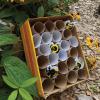
Pollinator Play
Source Institutions
In this activity, learners will build a bee hotel for pollinators. Learners will explore building and ecology through this activity.
Many Seeds: Estimating Hidden Seeds
Source Institutions
In this activity, learners will estimate how many seeds are in a fruit or vegetable, then count to find out. The result: mix estimation with healthy eating.
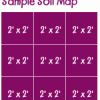
Creating a Soil Map
Source Institutions
In this activity, learners investigate soil conditions by creating a soil map. Learners record soil characteristics and compare the conditions of soil in different grid sections.
What Does Life Need to Live?
Source Institutions
In this astrobiology activity (on page 11 of the PDF), learners consider what organisms need in order to live (water, nutrients, and energy).
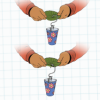
Breaking Point
Source Institutions
In this activity, learners build penetrometers to test leaf toughness. Biologists measure leaf toughness to study the feeding preferences of insects and bugs.

Leaf it to Me
Source Institutions
In this activity, learners observe the effect of transpiration as water is moved from the ground to the atmosphere.
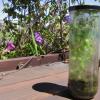
The Self-Watering Terrarium
Source Institutions
In this biology/ecology activity, learners construct a terrarium out of a tennis ball container. This terrarium is unique because it never has to be watered.
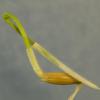
Germination Station
Source Institutions
In this botany activity, learners will create an experiment about seed germination. This activity gives students an opportunity to explore how seeds germinate and react to surrounding conditions.

BioBlitz
Source Institutions
In this activity (on page 2 of the PDF under GPS: Biodiversity Activity), learners will pair up and take a notebook outdoors to a selected location to observe and record a list of living things that t

Color-Changing Carnations
Source Institutions
Learners place cut flowers in colored water and observe how the flowers change. The flowers absorb the water through the stem and leaves.

Super Soil
Source Institutions
In this outdoor activity, learners make their own organic-rich soil. Depending on where this activity is done, learners will probably discover that their local soil is low in organic matter.

The Water Cycle
Source Institutions
Did you know that the water we use today is the same water found on Earth millions of years ago? The Earth constantly uses and recycles water in a process called the water cycle.

Tree-mendous Plots
Source Institutions
In this math lesson, learners record and graph plant growth and interpret data. Learners plant seeds, and once the seeds sprout, record the change in height of the plants for several days.
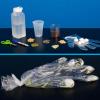
Grow a Garden in a Glove
Source Institutions
Learners use a transparent plastic glove as a container to grow seeds. A different kind of seed can be planted in each finger.
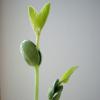
From the Ground Up
Source Institutions
In this plant science activity, learners conduct four experiments to observe how plants respond to sunlight and gravity.

Moving On Up: Capillary Action 1
Source Institutions
Over the course of several days, learners explore the property of water that helps plants move water from roots to leaves or gives paper towels the capacity to soak up water.
Sock Garden
Source Institutions
In this activity (located in the middle of the page), learners start a garden by planting their socks!

Everyday Poisons
Source Institutions
This reading and writing activity (on pages 2-9) teaches what plant parts should be avoided, how a person can get rid of toxins, symptoms of plant poisoning, and how plants create poisons to repel pre

Mystery Marauders
Source Institutions
In this outdoor, mystery-solving activity, learners work like detectives, gathering evidence to identify the culprits that are attacking plants.
